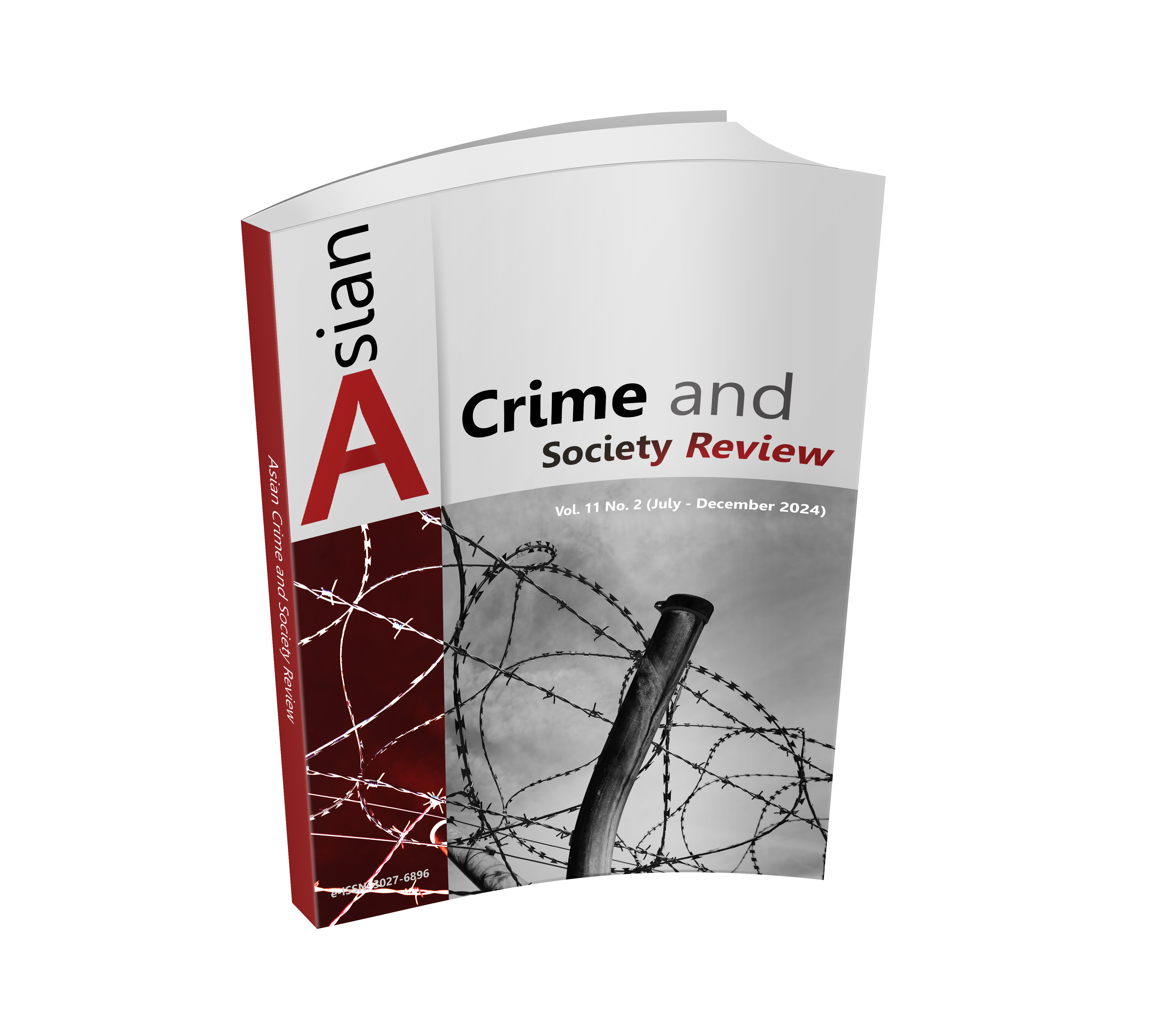IMPACT OF PARENT REARING STYLE AND SOCIETAL INFLUENCE ON THE CREATIVITY TENDENCY OF COLLEGE STUDENTS: A MEDIATED MODERATION MODEL
DOI:
https://doi.org/10.14456/acsr.2024.18Keywords:
Parent Rearing Style, Creating Self-Efficacy, Media Literacy, Creativity TendencyAbstract
This study investigated the influence of parental rearing styles and societal factors on the creativity tendency of college students using a mediated moderation model. By considering the broader societal context, the research aimed to explore how external influences shape students' creative tendencies alongside parental rearing styles. The study also examined parental parenting styles, considering the mediating role of creative self-efficacy and the moderating effect of media literacy. A questionnaire survey was conducted with 951 college students at a university in Jiangxi Province, China. The data collected were analyzed for reliability, validity, and confirmatory factor analysis using SPSS 25.0 and AMOS 22.0. Regression analysis, difference analysis, descriptive statistics, and other methods were employed to investigate the impact pathways, and Structural Equation Modeling was utilized to test the mediating effect. The results of the study revealed that parental parenting styles positively influence creativity tendency, creative self-efficacy has a significant positive impact on creativity tendency, and creative self-efficacy acts as a mediator in the relationship between parental parenting styles and creativity tendency. Additionally, media literacy was found to moderate the association between parental parenting styles and creative tendencies.
Downloads
References
Austin, E., Pinkleton, B., & Funabiki, R. (2007). The Desirability Paradox in the Effects of Media Literacy Training. Communication Research, 34(5), 483-506.
Brockhus, S., Van der Kolk, T., Koeman, B., & Badke-Schaub, P. (2014). The influence of creative self-efficacy on creative performance. A paper presented at the 13th International Design Conference, Dubrovnik, Croatia.
Chardon, M., Janicke, D., Carmody, J., & Dumont-Driscoll, M. (2016). Youth internalizing symptoms, sleep-related problems, and disordered eating attitudes and behaviors: A moderated mediation analysis. Eating Behaviors, 21, 99-103.
Fearon, D., Copeland, D., & Saxon, T. (2013). The relationship between parenting styles and creativity in a sample of Jamaican children. Creativity Research Journal, 25(1), 119-128.
Hobbs, R. (2011). Digital and Media Literacy: Connecting Culture and Classroom. California: Corwin Press.
Hong, S., & Lin, R. (2004). Development of the "Whatever You Say I Can Do It" (Student Creative Self-Efficacy Scale). Taipei: Taiwan Symposium.
Jeong, S., Cho, H., & Hwang, Y. (2012). Media literacy interventions: A meta-analytic review. Journal of Communication, 62(3), 454-472.
Kellner, D., & Share, J. (2007). Critical media literacy is not an option. Learning Inquiry, 1, 59-69.
Lee, S., & Chae, Y. (2007). Children's Internet Use in a Family Context: Influence on Family Relationships and Parental Mediation. Cyberpsychology Behavior Therapy, 10(5), 640-644.
Lin, C. (2005). On Ten Major Relationships in Developmental and Educational Psychology Research. Psychological Development and Education, 2(z1), 3-9.
Liu, C., Zhang, H., Zhang, L., Shi, J., Shi, G., & Tao, R. (2013). The Impact of Parenting Styles on Middle School Students' Creativity Tendencies and Self-Efficacy. Chinese Journal of Health Psychology, (4), 589-591.
Livingstone, S. (2004). Media Literacy and the Challenge of New Information and Communication Technologies. Communication Review, 7(1), 3-14.
Na, Z. (2014). Thinking Innovation. Extensive Reading, (03), 33-36.
Potter, W. (2010). The State of Media Literacy. Journal of Broadcasting & Electronic Media, 54(4), 675-696.
Reuter, M., Roth, S., Holve, K., & Hennig, J. (2006). Identification of first candidate genes for creativity: a pilot study. Brain Research, 1069(1), 190-197.
Tierney, P., & Farmer, S. (2002). Creative Self-Efficacy: Its Potential Antecedents and Relationship to Creative Performance. Academy of Management Journal, 45(6), 1137-1148.
Qian, M., & Xia, G. (1996). Correlational Study Between Adolescent Personality and Parenting Styles. Chinese Journal of Mental Health, 10(2), 58-59.
Qin, Y., Zhu, X., & Wang, J. (2017). A Review of Studies on the Relationship Among Parenting Styles, Creative Self-Efficacy, and Creativity. Journal of Nanchang Normal University, 38(4), 103-105.
Shang, X., Gu, H., Yuan, X., & Zhang, G. (2009). Strategies for Cultivating College Students' Innovative Capabilities. Vocational Education Research, (10), 126-127.
Song, T., & Wang, Z. (2021). Correlational Study on College Students' Parenting Styles, Creative Self-Efficacy, and Creativity Tendencies. Century Star—Communication Edition, (13), 69-70.
Stein, L., & Prewett, A. (2009). Media Literacy Education in the Social Studies: Teacher Perceptions and Curricular Challenges. Teacher Education Quarterly, 36(1), 131-148.
Wang, X., Zhang, J., Chu, Y., & Liu, G. (2009). The Relationship Among Family Environment, Creative Self-Efficacy, and Creativity in Elementary School Children. Psychological Exploration, 29(5), 46-50.
Wen, Z., & Ye, B. (2014). Mediation Effect Analysis: Method and Model Development. Advances in Psychological Science, 22(5), 731-745.
Williams, F. (1980). Creativity Assessment Packet (CAP): Manual. Maryland: D.O.K. Publishers, Inc.
Ying, J., Zhengrong, L., Bijing, J., & Yan, X. (2010). A preliminary revision of the Chinese version of the Simplified Parenting Style Questionnaire. Psychological Development and Education, 1, 94-99.
Zhao, C. (2010). Study on the Characteristics of College Students' Creativity and Its Relationship with Family Environment. Social Psychological Science, (4), 49-52.
Zurkowski, P. (1974). The Information Service Environment Relationships and Priorities (Related Paper No.5). Washington, D.C.: National Commission on Libraries and Information Science.

Downloads
Published
How to Cite
Issue
Section
License
Copyright (c) 2024 Authors

This work is licensed under a Creative Commons Attribution-NonCommercial-NoDerivatives 4.0 International License.










.png)


